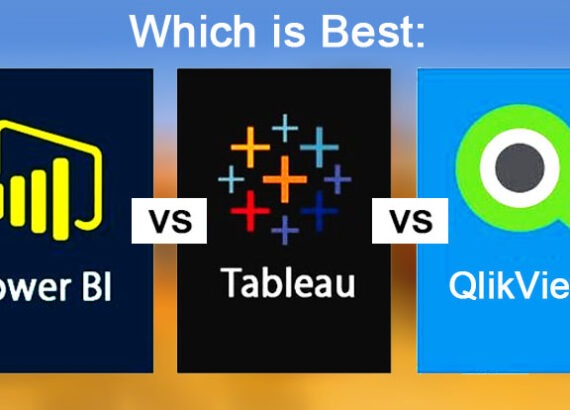Unlock the Secrets of Software Development and Become a Coding Pro!
Software development is a rapidly growing field that offers endless opportunities for those with a passion for coding. Whether you are a beginner looking to start your coding journey or an experienced programmer aiming to enhance your skills, this article will unlock the secrets and provide valuable insights into becoming a coding pro. From understanding the fundamentals of software development to mastering programming languages and exploring best practices, we will delve into the essential knowledge and tools that can catapult your coding abilities to new heights. So join us on this exciting journey as we unravel the mysteries of software development and help you embark on a path towards coding excellence.
1. Introduction to Software Development
What is Software Development?
Software development is the process of creating and maintaining computer programs and systems. It involves designing, coding, testing, and debugging software applications to meet specific requirements. From mobile apps to web applications and everything in between, software development is at the heart of the digital world.
The Importance of Software Development Skills
In today’s tech-driven world, software development skills are highly valuable and sought after. Whether you want to pursue a career as a developer or simply enhance your problem-solving abilities, learning software development can open doors to exciting opportunities. From improving efficiency in businesses to creating innovative solutions, software development skills are essential in various industries.
Common Misconceptions about Software Development
Software development can sometimes seem intimidating, especially to beginners. However, it’s important to debunk some common misconceptions that might discourage you from diving into this field. Contrary to popular belief, you don’t have to be a genius or a math whiz to become a successful developer. While logical thinking and problem-solving skills are valuable, anyone with dedication and a willingness to learn can become proficient in coding.
2. Essential Tools and Technologies for Coding
Choosing the Right Integrated Development Environment (IDE)
An Integrated Development Environment (IDE) is a software application that provides a comprehensive environment for coding. From popular choices like Visual Studio Code and IntelliJ IDEA to specialized IDEs for specific programming languages, finding the one that suits your needs and preferences is crucial.
Version Control Systems: Git and GitHub
Version control systems like Git and GitHub are essential tools for collaboration and managing code repositories. These systems allow multiple developers to work on the same codebase simultaneously while keeping track of changes and providing a backup in case something goes wrong. Learning how to use Git and GitHub will not only make you a more efficient developer but also make it easier to collaborate with others.
Package Managers and Dependency Management
They help ensure that your software projects have access to the necessary components and save you from manually handling dependencies. Popular package managers like npm for JavaScript and pip for Python automate the process of fetching and managing code libraries.

3. Mastering Programming Languages
There’s a plethora of programming languages out there, each with its strengths and use cases. Choosing the right programming language depends on your goals and the type of software you want to develop. From versatile languages like Python and JavaScript to more specialized ones like C++ or Swift, consider the applications and industries you’re interested in to make an informed decision.
Understanding Syntax and Basic Concepts of Programming Languages
When diving into programming languages, it’s important to grasp their syntax and basic concepts. Each programming language has its own rules and conventions, and understanding them is essential for writing clean and functional code. Concepts like variables, loops, functions, and data structures form the foundation of any programming language, so investing time in mastering these basics will pay off in the long run.
Exploring Advanced Concepts and Features
Once you’ve built a strong foundation, it’s time to explore advanced concepts and features of your chosen programming language. This could include object-oriented programming, functional programming, or working with frameworks and libraries specific to your language. Going beyond the basics will empower you to build more complex and sophisticated software applications.
4. Understanding Software Development Methodologies
Agile Methodology: Scrum and Kanban
Agile methodology, with its popular frameworks like Scrum and Kanban, has revolutionized software development. Agile emphasizes iterative and incremental development, allowing for flexibility and adaptability in project management. Scrum focuses on small, cross-functional teams collaborating in short sprints, while Kanban emphasizes visualizing work and optimizing flow. Understanding these methodologies can help you work efficiently and deliver high-quality software.
Waterfall Methodology: Pros and Cons
While agile methodologies have gained popularity, it’s important to be aware of the traditional Waterfall methodology as well. Waterfall follows a linear approach, with each phase of a project completed sequentially. It has its pros and cons, including a clear project roadmap but limited flexibility for changes. Knowing when to use Waterfall versus Agile methodologies can ensure you choose the right approach for different projects.
Hybrid and Iterative Approaches
In practice, software development often adopts hybrid and iterative approaches that combine elements from different methodologies. These approaches allow for flexibility while adapting to the project’s specific requirements. By understanding and combining the best aspects of various methodologies, you can tailor your development process to suit your team and project needs.
Networking and Connecting with the Coding Community
5. Building Solid Foundations: Data Structures and Algorithms
Introduction to Data Structures
Ah, data structures. The unsung heroes of software development. They’re like the secret sauce that makes your code faster, more efficient, and more organized. In this section, we’ll dive into the world of data structures and explore how they can level up your coding game. From arrays to linked lists, stacks to queues, we’ve got you covered. Get ready to structure your data like a pro!
Basic Algorithms and Sorting Techniques
Algorithms, the brainiacs of software development. They’re like the Sherlock Holmes of coding, solving complex problems and making sense of the chaos. In this section, we’ll unravel the mysteries of basic algorithms and sorting techniques. From bubble sort to merge sort, we’ll show you how to sort your data like a boss. Get ready to crack the code!
Advanced-Data Structures and Algorithmic Techniques
Feeling brave? Good, because in this section, we’re taking it to the next level. We’ll explore advanced data structures like trees, graphs, and hash tables, and delve into algorithmic techniques like dynamic programming and greedy algorithms. Don’t worry, we’ll guide you through the maze of complexity and make it all seem like a walk in the park. Get ready to become the coding wizard you were meant to be!
6. Best Practices for Debugging and Troubleshooting
Understanding Common Software Bugs and Errors
Bugs. They’re like the pesky mosquitoes of software development, buzzing around and driving you crazy. But fear not, because in this section, we’ll help you understand the common bugs and errors that plague coders. From syntax errors to logic bugs, we’ll shine a light on them all. Get ready to squash those bugs like a pro exterminator!
Effective Debugging Techniques and Tools
Debugging, it’s like detective work for coders. In this section, we’ll equip you with the tools and techniques to crack the case and solve the mysteries of your code. We’ll show you how to use debuggers, loggers, and other handy tools to get to the bottom of those pesky bugs. Get ready to don your detective hat and become a code-solving Sherlock!
Troubleshooting Strategies for Efficient Problem Solving
Sometimes, bugs can be stubborn little creatures. But fear not, because, in this section, we’ll give you the strategies and techniques to troubleshoot like a pro. From isolating the problem to testing and verifying your solutions, we’ve got you covered. Get ready to troubleshoot your way to coding glory!
7. Collaborating and Communicating in Software Development Teams
Effective Team Communication and Collaboration Tools
Software development is rarely a solitary endeavour. In this section, we’ll explore the tools and techniques for effective team communication and collaboration. From project management platforms to chat apps, we’ll show you how to stay connected and work seamlessly with your teammates. Get ready to be the team player everyone wants on their side!
Agile Teamwork: Daily Stand-ups and Retrospectives
Agile development is the secret sauce that keeps software teams running like a well-oiled machine. In this section, we’ll introduce you to the world of daily stand-ups and retrospectives – the heartbeat of agile teamwork. We’ll show you how to communicate effectively, prioritize tasks, and keep the project on track. Get ready to embrace the agile way of working!
Resolving Conflicts and Navigating Team Dynamics
Let’s face it, working with others can sometimes be challenging. But fear not, because in this section, we’ll equip you with the skills to navigate through conflicts and maintain harmony in your software development team. From effective communication to active listening, we’ll show you how to be the peacemaker and keep the team spirit alive. Get ready to be the MVP of team dynamics!
8. Continuous Learning and Professional Growth in Coding
Staying Updated with the Latest Industry Trends
In the fast-paced world of coding, staying ahead of the curve is key. In this section, we’ll show you how to keep up with the latest industry trends, from attending conferences to following tech blogs and podcasts. We’ll keep you in the loop so you can stay relevant and continue your journey towards coding greatness!
Engaging in Personal Projects and Open Source Contributions
Coding isn’t just about the day job – it’s a way of life. In this section, we’ll encourage you to think outside the box and engage in personal projects and open-source contributions. We’ll show you how to flex your coding muscles, learn new skills, and make a difference in the coding community. Get ready to unleash your creative coding genius!
Networking and Connecting with the Coding Community
In this section, we’ll emphasize the importance of networking and connecting with the coding community. From attending meetups to joining online forums, we’ll show you how to build valuable connections and learn from others in the field. Get ready to expand your coding horizons!
Conclusion
In conclusion, software development is a dynamic and ever-evolving field that requires continuous learning and dedication. By following the insights and strategies outlined in this article, you can unlock the secrets of software development and become a coding pro. Remember to stay curious, embrace challenges, and never stop exploring new technologies and methodologies. With practice and perseverance, you can unleash your coding potential and make a significant impact in the world of software development. So go forth, armed with knowledge and passion, and let your coding skills shine!
FAQ
1. Do I need a background in programming to start learning software development?
Starting with a programming background can certainly be helpful, but it is not a strict requirement. Software development can be learned by anyone with dedication and a willingness to learn. There are plenty of resources available for beginners, including online tutorials, coding boot camps, and community forums, that provide a solid foundation for learning software development.
2. How long does it take to become a proficient coder?
The time it takes to become a proficient coder varies depending on factors such as prior experience, the amount of time dedicated to learning, and the complexity of the projects undertaken. It is important to approach coding as a lifelong learning process rather than a destination. With consistent practice, regular learning, and hands-on experience, you can gradually improve your coding abilities and become proficient in software development.
3. Which programming languages should I focus on learning?
The choice of programming languages depends on your specific goals, interests, and the industry you want to work in. Popular programming languages like Python, Java, JavaScript, and C++ are versatile and widely used, making them good starting points for beginners. Research the requirements of the field you are interested in and consider learning languages that align with those demands to increase your job prospects.
4. How important is collaboration in software development?
Collaboration is vital in software development as it enables teams to work efficiently, enhances problem-solving abilities, and promotes knowledge sharing. Software development often involves working in teams, utilizing version control systems, and participating in code reviews. Effective communication and collaboration skills will not only improve the quality of your work but also make you a valuable asset in the software development industry.
Thank you for reading 🙂
Get up to 70% Discount on Amazon (Buy Now)
If you want to build your website at an affordable price contact: www.nextr.in
Read this: Top 8 Apps Every Entrepreneur Needs


















